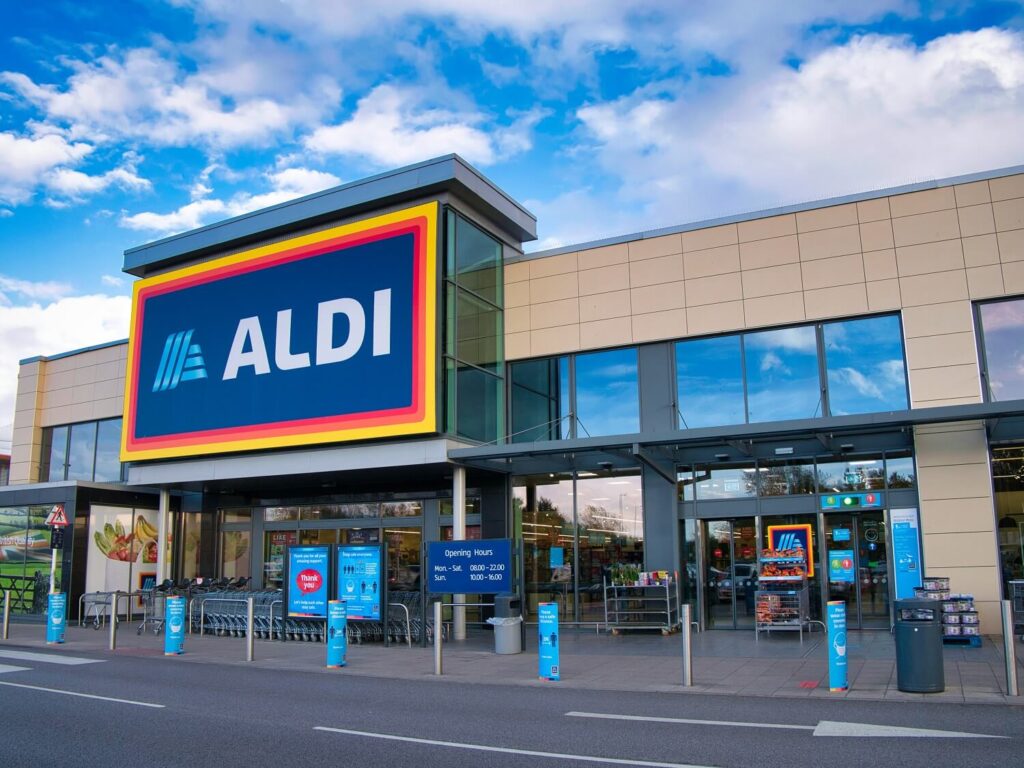Two of Europe’s largest food retailers, Aldi and Lidl, have pledged to increase their plant-based meat offerings over the next five years to promote more sustainable eating.
Under the plans, both brands will commit to selling 60% plant-based products by 2030. Combined, the grocery chains have made the pledge across six European countries.
So far, neither firm plans to introduce the targets to the UK. Only one major British supermarket chain, Tesco, has set vegan sales targets for its inventory.
The move suggests that meat products could be bumped down UK supermarket shelves in years to come, as retailers seek out ways to lower their carbon footprint.
European supermarkets plan to cut meat sales
Lidl and Aldi unveiled their targets for split animal and plant protein sales after a campaign by a Dutch animal welfare organisation called Wakker Dier. They join nine other Netherlands-based retailers in making the pledge.
The move means that all 11 food brands in the country will sell 60% plant-based food, and 40% animal products, in order to cut meat consumption and reduce carbon emissions.
Aldi has only introduced the targets in the Netherlands. However, Lidl has also rolled them out in five other locations: Germany, Belgium, Croatia, Switzerland, and Austria.
Separately, Aldi has also pledged to expand its vegan food range and offer more than 1,000 products in its plant-based range by the end of next year.
Tesco leads UK food retail green revolution
Compared to the Netherlands, UK retailers trail behind in terms of sustainable food sales. Of the so-called ‘Big Four’ supermarket chains (comprising Tesco, Morrisons, Sainsbury’s, and Asda), only Tesco has said it will triple its plant-based sales by 2025.
Likely, however, rival brands will join suit. While they have stopped short of vegan sales targets, more big grocery chains have begun rolling out sustainability objectives given the pressure on organisations to address climate change and lower carbon emissions.
At COP26, Tesco — as well as Waitrose, the Co-op, Marks & Spencer, and Sainsbury’s — pledged to halve the environmental impact of customer shopping baskets by 2030.
A 2023 study by Profundo found that if four of Europe’s biggest retailers (including Tesco) replaced half their meat sales with plant proteins by 2030, they’d save emissions equivalent to taking 22 million cars off the road.
Aldi and Lidl are again leading the charge here. Since 2016, both brands have reduced their food waste by 57% and 43%, respectively.
Good news for plant-based startups
In a report by the WWF, published last November, most retailers were found to have reduced emissions from their operations. However, progress on emissions from supply chains and products sold – which account for 95% of total emissions – was less positive.
Large food sellers are leaning on innovative startups to help accelerate their green targets. Animal-free and meat-alternative products dominated this year’s Startups 100 Index, as investor appetites grew for sustainable F&B brands. They include:
- THIS™: meat alternatives so realistic that even meat-eaters can’t tell the difference
- Better Dairy: Hackney-based ‘brewer’ of dairy products that are 100% animal-free
- Hoxton Farms: food tech firm that’s “growing” cultivated fat for meat alternatives
- Julienne Bruno: delicious vegan-friendly cheeses inspired by the Italian Burrata
- Bold Bean Co: the tastiest, protein-packed beans and a perfect alternative to meat
- Milky Plant: machine to make plant-based milk from the comfort of your own home
Collectively, these brands raised over £60m in funding. Many of their products are now stocked on major grocery shelves nationwide, including in Sainsbury’s, Waitrose, and Tesco.
For supermarkets, the biggest barrier to backing these products is consumer demand. In the cost of living crisis, shoppers have tended to prioritise cheaper food and drink options.
However, research suggests that the popularity of these products, and the demand for ‘flexitarian’ vegan-meat combo diets, is helping to drive competition in the market. As a result, plant-based items are becoming more affordable for customers.
Wakker Dier data shows that supermarkets sold 2.3% less meat in 2023, compared to 2022. It attributes this decline in part to the price of plant-based alternatives being lowered.




